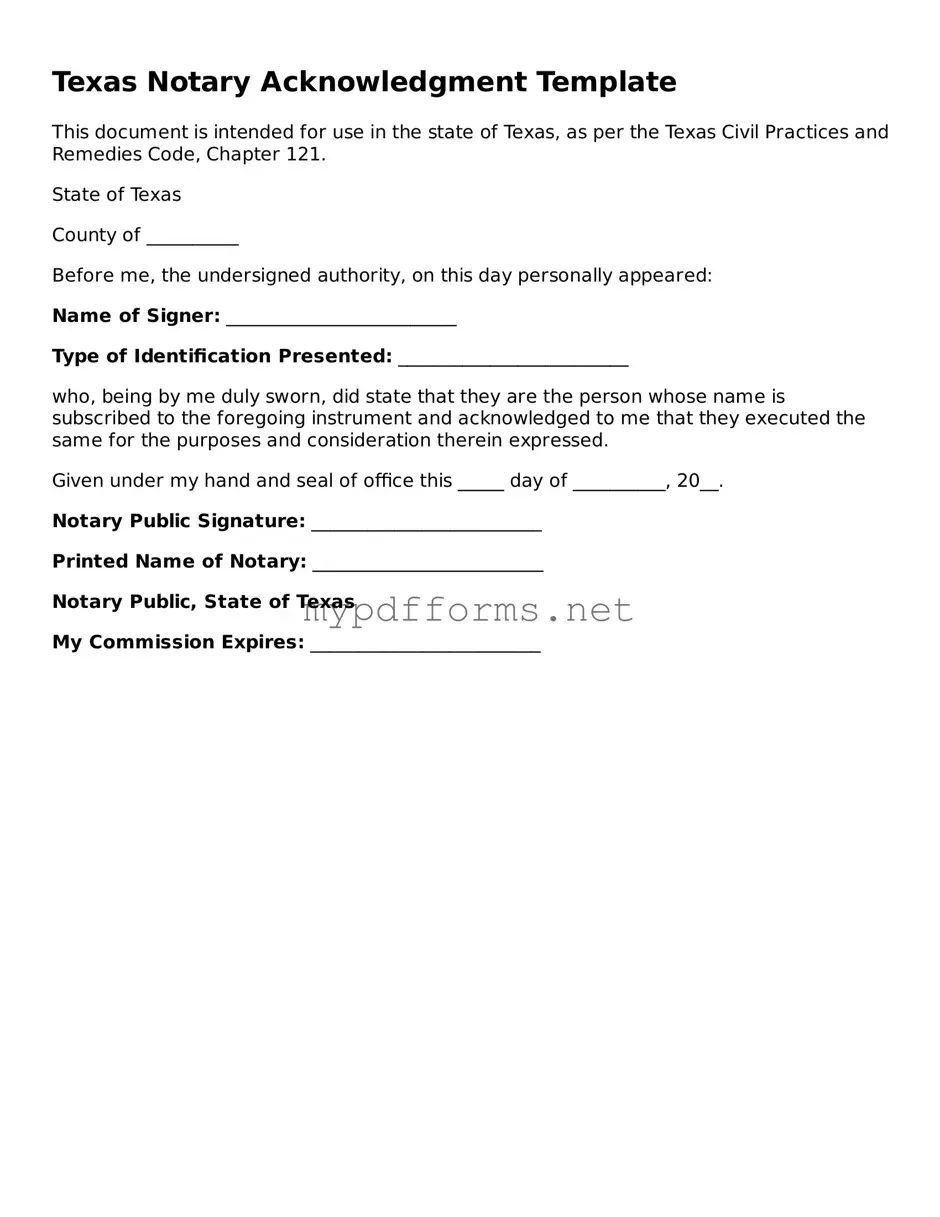The Texas Notary Acknowledgment form is similar to the Affidavit form. Both documents serve to verify the identity of the signer. An Affidavit is a written statement confirmed by oath or affirmation, which must be signed in the presence of a notary public. In both cases, the notary confirms that the individual signing the document is who they claim to be, providing a layer of authenticity and legal weight to the statements made within the document.
Another document akin to the Texas Notary Acknowledgment is the Power of Attorney. This document grants one person the authority to act on behalf of another in legal or financial matters. Like the Notary Acknowledgment, a Power of Attorney must be signed in the presence of a notary to ensure that the principal is making the decision voluntarily and understands the implications of granting such authority.
The Deed form also shares similarities with the Texas Notary Acknowledgment. A Deed is used to transfer property ownership and typically requires notarization to be legally binding. The notary's role is to confirm the identity of the parties involved and to witness the signing, ensuring that the transfer of property is legitimate and enforceable.
Similarly, the Mortgage document requires notarization. This document outlines the terms of a loan secured by real property. Notarization serves to authenticate the signatures of the borrower and lender, protecting both parties by verifying that the agreement was entered into willingly and with full understanding of the terms.
The Quitclaim Deed is another document that mirrors the Texas Notary Acknowledgment form. This document allows a person to transfer any interest they may have in a property to another party. Notarization is essential here, as it verifies the identity of the grantor and ensures that the transfer is executed properly, thus preventing future disputes over property ownership.
If you are considering a vehicle transaction in Maryland, it is vital to understand the significance of a comprehensive Motor Vehicle Bill of Sale, which serves as a crucial record of the transfer between the seller and buyer. This document not only facilitates registration and tax processes but also protects the interests of both parties involved. For more information, visit the comprehensive Motor Vehicle Bill of Sale guide.
Next, the Certification of Trust is similar to the Notary Acknowledgment form. This document provides evidence of a trust's existence and outlines the powers of the trustee. Notarization is crucial in this context, as it verifies that the person presenting the Certification is indeed authorized to act on behalf of the trust, safeguarding the interests of the beneficiaries involved.
The Bill of Sale is another document that requires notarization and bears resemblance to the Texas Notary Acknowledgment. This document serves as proof of the transfer of ownership of personal property from one party to another. The notary's role is to authenticate the signatures of both parties, ensuring that the transaction is legitimate and that both parties are in agreement.
Lastly, the Release of Lien form is similar to the Texas Notary Acknowledgment. This document is used to remove a lien from a property, confirming that the debt has been satisfied. Notarization is necessary to verify the identity of the individual releasing the lien, ensuring that the process is conducted legally and that the property can be transferred free of encumbrances.

